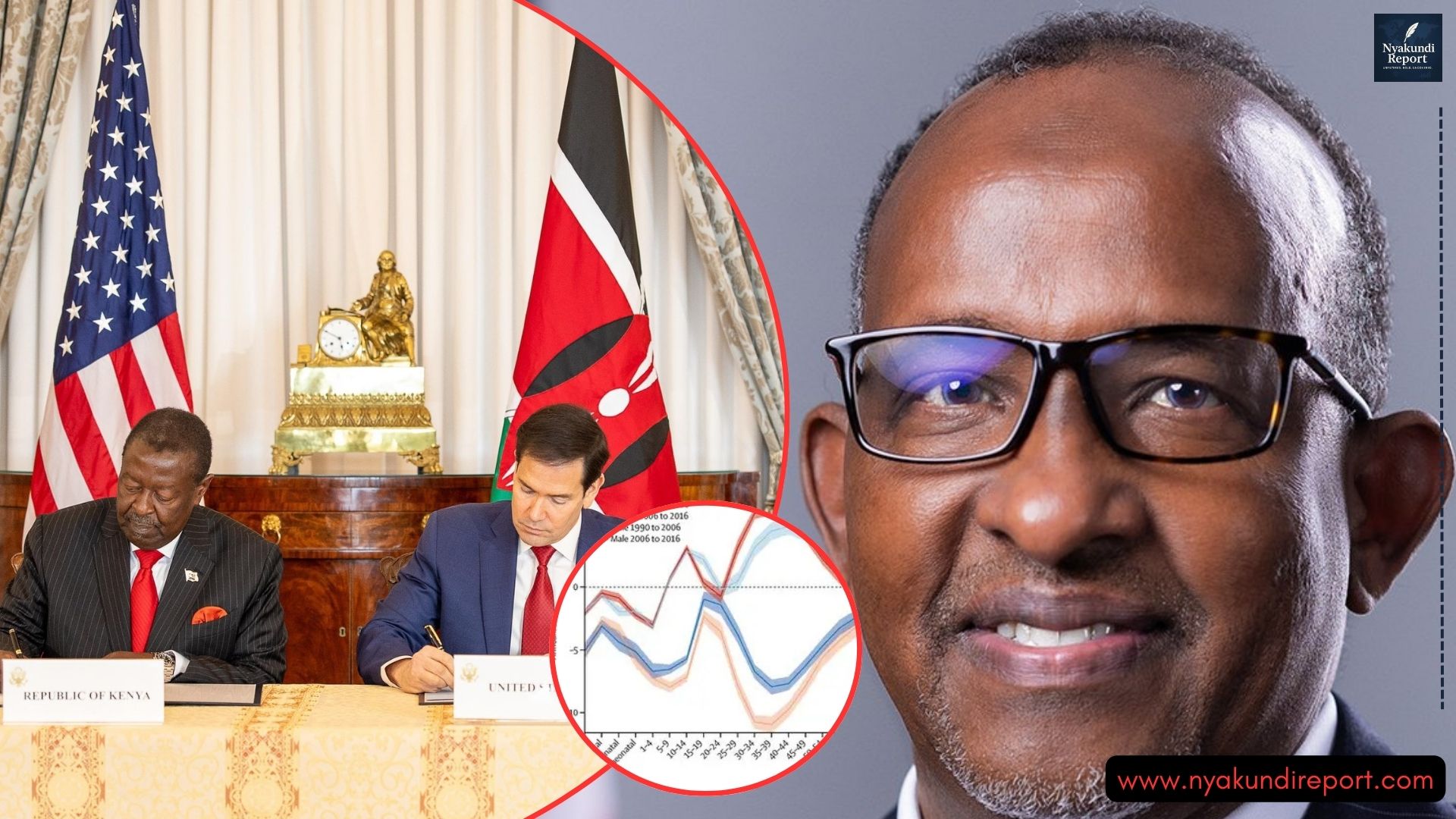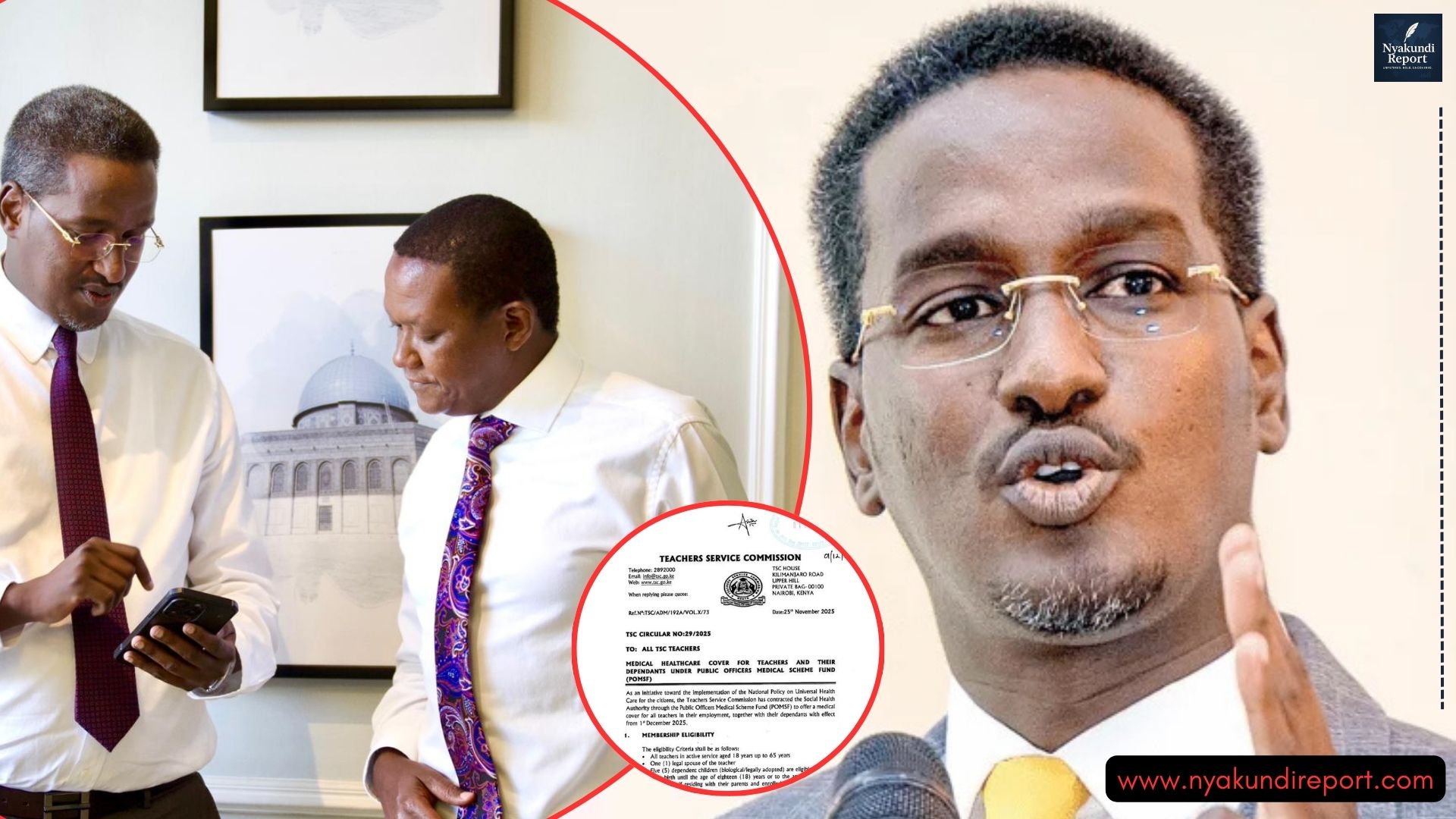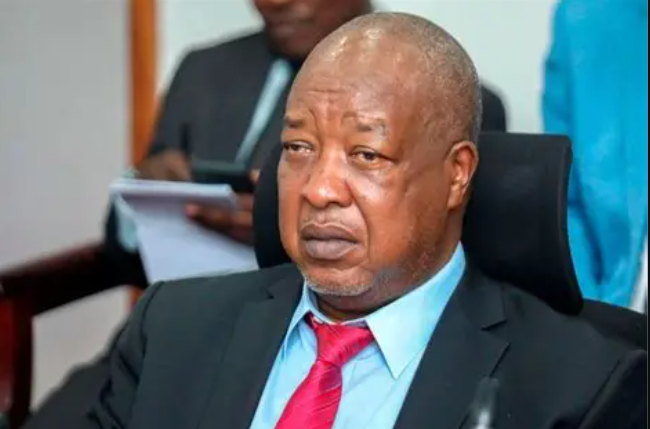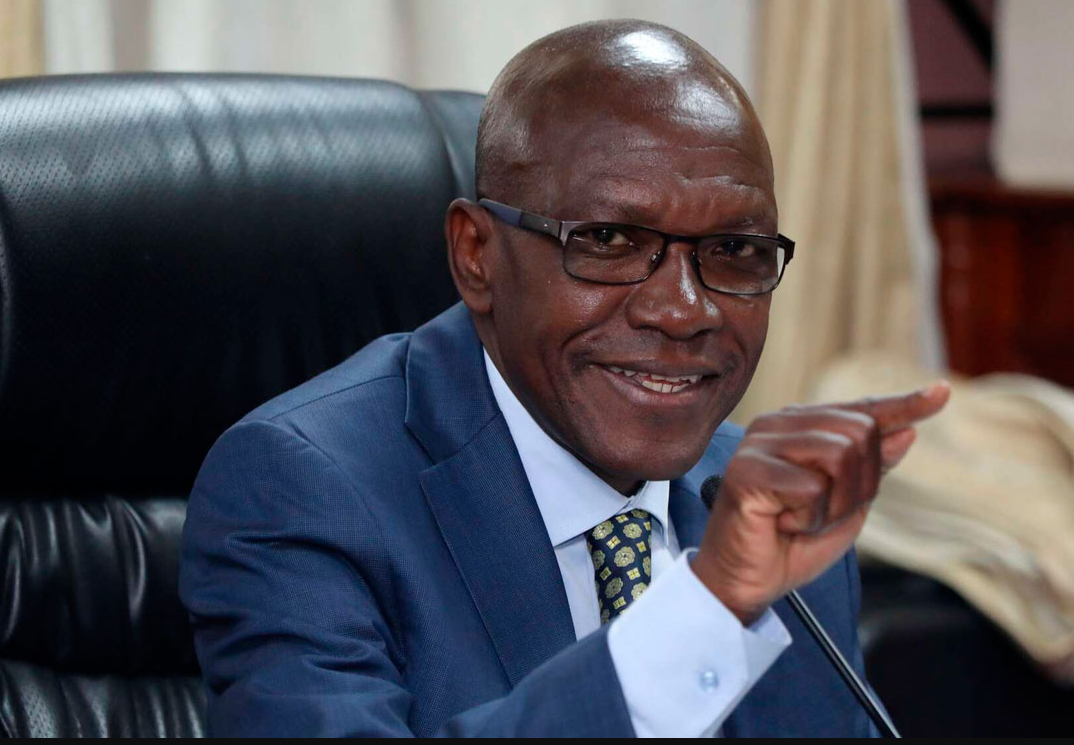In a move poised to significantly impact the healthcare sector and the livelihoods of thousands of workers.
Defense Cabinet Secretary Aden Duale has announced a transformative plan to transition Universal Health Coverage (UHC) staff into permanent and pensionable roles within county governments.
This announcement, made during a national healthcare stakeholder meeting in Nairobi.
Indeed, it signals a major shift in the management and stability of the UHC workforce.
Thus, the program aims to solidify the program’s long-term sustainability and improve healthcare service delivery across Kenya.

Background: The UHC Workforce Challenge
The UHC initiative, launched in 2020, recruited over 8,500 healthcare professionals.
Including doctors, nurses, clinical officers, and laboratory technicians, on three-year contracts to bolster healthcare delivery across Kenya’s 47 counties.
These workers played a pivotal role during the COVID-19 pandemic, often working under challenging conditions with limited resources.
Despite their critical contributions, many UHC staff have expressed dissatisfaction with their employment terms.
Citing lower salaries compared to their permanently employed counterparts, lack of job security, and ineligibility for benefits such as pensions and loans.
Protests and strikes have been staged in various regions, including Nairobi and the coastal counties, demanding the absorption of UHC staff into permanent positions.
Financial Implications and Government Response
The proposed transition to permanent and pensionable terms is estimated to cost the government approximately KSh 7.8 billion.
Currently, only KSh 4.23 billion is allocated in the national budget for this purpose, leaving a funding gap of about KSh 3.5 billion.
The Ministry of Health has acknowledged this shortfall and is seeking additional funds from the National Treasury to facilitate the absorption process.
Held a follow-up consultative meeting with officials from various Universal Health Care (UHC) workers’ unions at Afya House.
We discussed the ongoing industrial action and addressed the growing discontent among the unions, as we work together to find a way forward.
— Hon. Aden Duale, EGH (@HonAdenDuale) May 13, 2025
A multi-agency task force comprising representatives from the Ministry of Health, the Public Service Commission, the National Treasury.
And the Council of Governors has been established to oversee the transition.
The task force has emphasized that continuing to employ UHC staff on contractual terms contravenes employment laws and undermines the objectives of the UHC program.
County Governments’ Role and Concerns
County governments have been identified as key players in the absorption process, given their constitutional mandate over healthcare service delivery.
The Council of Governors has expressed willingness to take over the management of the UHC staff.
But has called for additional resources and support from the national government to ensure a smooth transition.
Some counties have raised concerns about the financial burden of absorbing UHC staff, especially in the absence of adequate funding from the national government.
These concerns have contributed to delays in the absorption process and have left many healthcare workers in a state of uncertainty.
Implications for Kenya’s Healthcare System
The transition of UHC staff to permanent and pensionable roles is expected to have far-reaching implications for healthcare service delivery in Kenya.
By enhancing job security and staff morale, the government aims to create a more stable and motivated workforce.
Therefore, this leads to improved quality and accessibility of healthcare services.
This move is particularly significant for underserved areas, where healthcare workers often face challenging working conditions and limited career prospects.
The offer of permanent employment and pension benefits is expected to attract and retain qualified professionals in these areas, ensuring equitable access to healthcare for all Kenyans.
Conclusion
Health CS Aden Duale’s announcement marks a critical step towards addressing the longstanding employment challenges faced by UHC staff.
While financial and logistical hurdles remain, the government’s commitment to transitioning these workers.
Moving into permanent roles under county governments signals a positive shift towards strengthening Kenya’s healthcare workforce and achieving the goals of Universal Health Coverage.
ALSO READ: Erastus Edung, Can He Restore Trust in Kenya’s Elections?









































